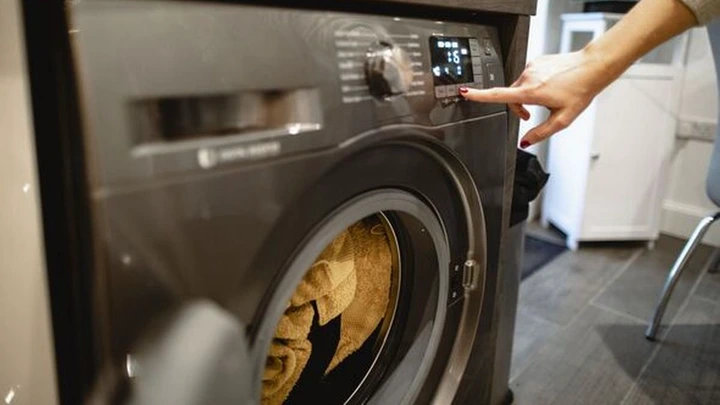Doing laundry is a necessary chore in every home, but there are several tips and strategies that can assist you in reducing your energy costs.

View pictures in App save up to 80% data.
Households across the UK are feeling the chill as energy bills soar, making it tough to stay cosy in our homes. Laundry can really add to your energy bills but there's a spin on saving you can try.
Energy expert Les Roberts from Bionic said: "One way to cut down on costs when using a washing machine is to check the efficiency of your device. The energy rating should be printed on the energy label of your washing machine device and will be ranked from G-A with A being the most efficient model.
"More advanced models greatly reduce the kilowatt-hours consumed per cycle, resulting in considerably lower operating expenses. In general, older appliances are usually less energy-efficient, so if your washing machine is over a decade old, it may be beneficial to consider an upgrade."
Does doing your washes at witching hours help pinch pennies? Definitely, says the pro, especially if you're zapping energy on a time-of-use or off-peak tariff, reports the Express.
Les explains that energy prices generally decrease during the late-night hours, specifically from 10pm to 8am, when there is less demand on the grid. He emphasized, "During these times, costs can drop by as much as 50 percent, making it a smart choice to do your laundry overnight and benefit from these lower off-peak rates."
Here's a valuable tip from David Palmer, a seasoned expert from LG's Home Appliances division: "For optimal energy efficiency, washing machines operate best at lower temperatures over extended periods. The temperature setting you select for washing your laundry significantly affects your energy consumption. By opting to wash at 20 degrees Celsius or less, you can greatly reduce the energy your washing machine uses."

View pictures in App save up to 80% data.
The detergent brand Ariel suggests washing clothes at lower temperatures, like 20 or 30 degrees. This approach helps preserve color and reduces the risk of shrinkage. It's particularly effective for lightly soiled items, such as seasonal clothing that only requires a quick refresh.
However, for heavily soiled items like bath towels or bed linens, a hot wash is recommended to eliminate pests and prevent mold, typically above 40°C or even reaching 60°C. For minor stains, Ariel recommends using a cooler wash temperature.
David highlighted a common mistake that can impact efficiency, stating: "Using too much detergent can negatively influence your washing machine's energy efficiency." He warned that an overabundance of soap might force your washer to operate harder, result in poorer cleaning results, and could potentially damage your clothing, leading to extra costs and undermining any savings.
Deyan Dimitrov from Laundryheap's refuted a widespread "common misconception" that dirtier linens or attire need more detergent. The laundry expert has sounded the alarm that overdoing it with detergent could do "more harm than good", particularly when it comes to your bed linens.
He mentioned, "Excessive detergent not only has the potential to discolor your sheets, particularly if they are white, but it can also degrade the fibers over time, leading to holes and rips." He suggests replacing laundry soap with a mixture of "half a cup of baking soda and vinegar for washing your bed linens."
David is promoting a more "cost-effective" method for doing laundry, encouraging individuals to wash full loads rather than multiple smaller ones. He cautions that overloading the washing machine could result in clothes not getting cleaned properly and may cause issues with the detergent pod not dissolving completely.